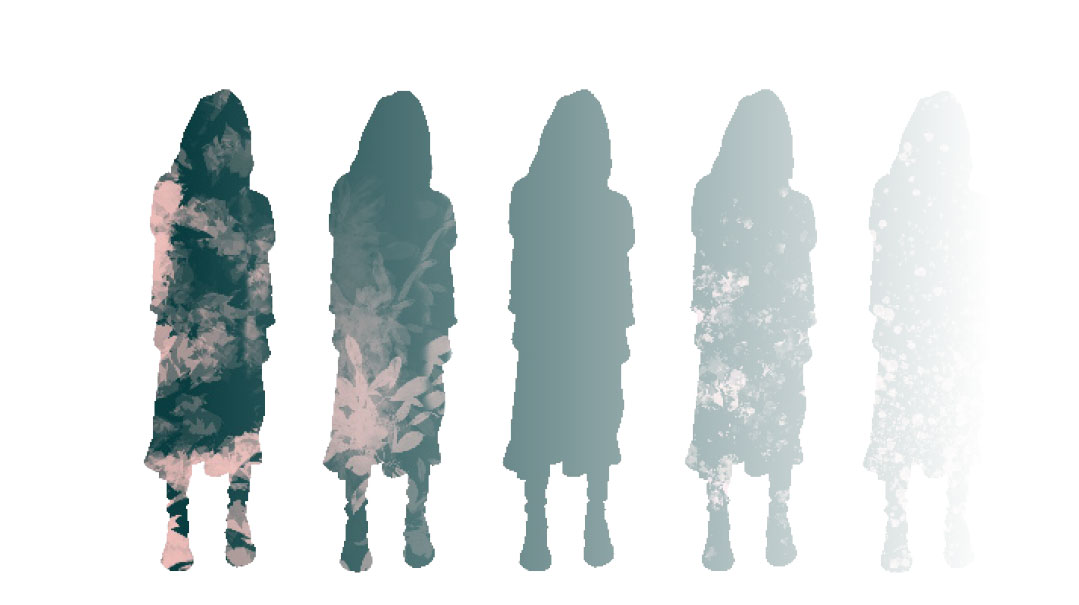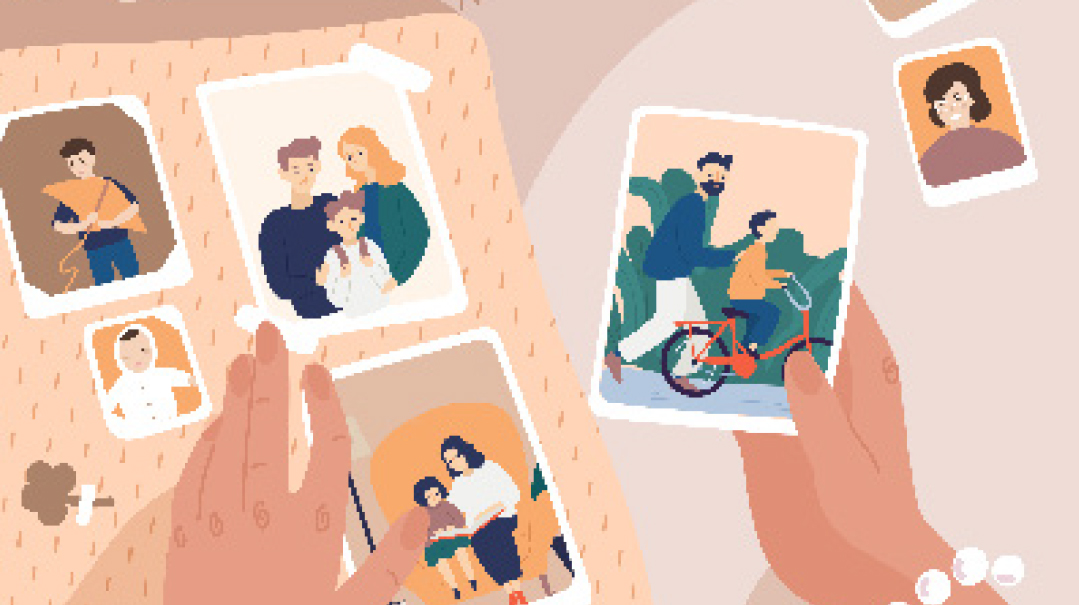Bitter Pill
| December 27, 2017I gained a new respect for my clients who call in to request a session, and then come in to my office, week after week

O
ne of the hardest decisions of my life was choosing to go on antidepressants. I had no “reason” really. I didn’t match that typical picture of an individual suffering from depression: blankets drawn over her head unable to function. I’d worked in the mental-health field for years and felt pretty secure in my knowledge of which patients required medications or at least a psychiatric referral to rule out the necessity of meds.
So when a supervisor encouraged me to see a psychiatrist after a traumatic event in my life I knew the doctor would dismiss any organic concern. Sure I was experiencing more lows than normal and even had some suicidal ideation — but I diagnosed myself with dysthymia a low-grade depression that generally doesn’t require meds. I chalked it up to post-traumatic stress disorder and I was confident I’d overcome this hurdle.
Because if there was one thing I could say with confidence it was that I definitely did not need medication.
It’s ironic how even among those working in mental health there’s still something of a stigma toward psychotherapy and medication. Even after practicing as a social worker treating others I refused to engage in treatment. Me? Need a therapist? Pfft. I’m managing just fine thank you very much. I am in touch with my emotions understand the narrative of my life know why I do what I do over-analyze to an extreme.
I slowly chipped away at that stigma when I made the decision to enter therapy a few years ago. That decision came soon before my second child was born. Some people get the urge to clean; my nesting is expressed through wanting to go to therapy. I felt there were so many things I had to work through understand about myself my upbringing my marriage my parenting before I could bring new life into the world.
It was a challenging decision and I gained a new respect for my clients who call in to request a session and then come in to my office week after week. It was fascinating to be on the other side to understand the therapeutic relationship from a different perspective.
And although it shifted my view of those who decide to go to therapy seeing them through more sympathetic understanding eyes there was still a clear demarcation of those clients who are on medication. There’s “us” — the normal ones — and “them ” those who are victims of their own minds who need external input to gain control and be one of “us.”
I was clearly “us ” a normal one a strong capable woman who managed just fine. Why would I need medication? If any psychiatrist were to see my profile they’d quickly see I’m an overachiever… to a fault. I am a writer a social worker a teacher a lecturer. On the side I moonlight as a songwriter and a ballet dancer.
At my first appointment with my psychiatrist, I was gratified when she confirmed my self-diagnosis, encouraging me to continue working with my therapist, and dismissing the need for medication. See? I said, to exactly no-one, I’m still normal! There’s nothing wrong me!
We scheduled a follow-up appointment, and I promptly returned to my comfortable existence, knowing I was on the healthy side of humanity.
Six months later, I was doing far better. I was feeling good, and had even begun to taper off from therapy, with the intention of stopping completely. I felt I was in a great place emotionally, and had gained important tools to be a better individual, wife, and mother. In fact, I’d planned on cancelling my third follow-up appointment with my psychiatrist entirely: I definitely had no need for medications now.
But I really liked my psychiatrist as a person, and always gained from our discussions. She had fresh insights, and a balanced way of looking at the world which I appreciated. An hour spent with her was enjoyable, so I figured, why not? We would have a final “good bye,” I’d thank her for her assistance, and promptly forget about my flirtation with the world of medications. I’d leave that world for my clients.
And then, during the course of our appointment, we spoke about my anxiety, about my low points, about how, when I get overwhelmed by life, my mind goes down the well-traveled road of “What’s the point of it all? Wouldn’t it just be better if I were dead?” We spoke about how when I face rejection, I beat myself up, feel like a nobody, wonder about the purpose of life.
I always chalked it up to my intense nature, a part of my personality I appreciated and felt gave me character. One of the earliest memories is approaching my mother late one night, unable to fall asleep. I must have been about five or six, and I cried on her shoulder, overwhelmed by the idea of Mashiach, and the concept of forever. Forever. That was a scary idea to entertain. Did I really want Mashiach to come, if it meant living on and on and on and on and on…? My mother sighed, unsure how to answer my question, gave me a kiss on the cheek, and returned me to my bed.
Only in retrospect do I understand my mother’s feelings of overwhelm, of uncertainty to how to answer an adult question from the mouth of a child. Since a young age, this has been my daily companion, a mind that’s constantly questioning life, and death, and all that means in between. Rumination is a confusing friend, my thoughts a vortex of the hows, whys, and whats of life. Over and over and over again. And then I’d judge those thoughts: I shouldn’t be thinking of this. Why am I thinking this? Am I okay? Am I normal? Does everyone think like this?
My psychiatrist thought there was a problem with that.
So, at our session, the one I had anticipated being our final one, which would allow me to return to my cocoon of normalcy, ensconced in the knowledge that I’m okay, she recommended I go on a medication to alleviate my anxious-depressive tendencies.
I felt slapped in the face. But… but… but… I’m doing so much better! I’m finishing therapy! I’m a success! Aren’t I…?
I’ll be stigmatized, viewed differently, as a failure. I know I may have had that perception of others when they entered my office, listing the medications they were taking. Depression and anxiety, to me, seemed “manageable” if only I could try harder.
We spoke about it, the psychiatrist and me. The decision to go on medication was hard and draining and made me feel like I was in a boxing ring, fighting with myself.
I didn’t want to. I felt like I failed.
I discussed it with my husband. I thought about it. More accurately, I analyzed and deliberated and ruminated ad nauseam.
And then I realized: ah. This is precisely what my psychiatrist thinks I need medication for.
I took the leap. The next morning, I went to the pharmacy, shaking. Would the pharmacist say something? Berate me for falling into the trap, weak being that I am?
I looked around, saw an acquaintance waiting on line. I quickly averted my gaze; this was no time to deepen our relationship. When the pharmacist handed me my prescription, I swiftly covered it with my hand, hoping she wouldn’t see what I was taking.
I was struggling with the concept, consumed with worry about what others think. Would this impact me personally, professionally, if the secret were out? I wish, I so wish, that I could mention casually: “Oh, I’m just here to pick up my Allegra. You know, seasonal allergies, mine are awful. And also my Zoloft — it really helps my ruminatory thoughts. How about you?”
But I know how others view medication. I still hold on to it somewhat, that misconception that to take medication implies a lacking, a failing, a weakness.
Even after the SSRI had kicked in, it took me a long time to realize how my own brain had been getting in the way, and there was no fertile ground for my therapeutic gains to flourish. It was like there was radio static constantly in my head, serving as background noise, affecting my quality of life. It drained me, sapping my energy, constantly trying to focus on the present while my thoughts took me away.
I was petrified that the medication would completely alter my personality, that I would be on a constant high, that the depth I appreciated about myself would be whitewashed.
It didn’t. I was lucky enough not to have any side effects, and felt a certain calm and ease which was strangely unfamiliar and comforting at the same time. For me, anti-depressants allow me a way out, help me to breathe easier, manage daily life better. It feels like I was working so hard, and now I’ve gotten a well-deserved break.
I still get stuck in my thoughts sometimes, but I have the tools I can use to get out of it. I don’t go down that road of “if only I weren’t alive”… which is a really gratifying and amazing path not to travel.
I’m still keeping my secret close, because although I now see the fact that I take anti-depressants not as a weakness, but as a strength, I know others don’t have that clarity of vision. It took me time to change my own perspective, and it highlighted for me how biased we — even those in the field — all are. Writing this is one way I am chipping away at the stigma of mental health.
If I were braver, I’d write under my real name. For now, I’m using a pen name.
I know there’s no cure-all, and pills aren’t magic. I also recognize that there can be side effects, and for many, it’s trial and error before they find the right combination that works for them. I’m aware of the controversy surrounding SSRIs, and know there are those on opposing camps.
I also know that if there was something physically wrong with my body, causing me pain, I’d speak to my doctor about medication, and at least try different things to see if I could alleviate my symptoms, and then make an informed, well-rounded decision to see if it is worth the risks.
For me, the decision to start medication was a challenging one, but one I am so happy I made, with benefits I keep reaping.
I still feel like me — just an improved version.
(Originally featured in Family First Issue 573)
Oops! We could not locate your form.













